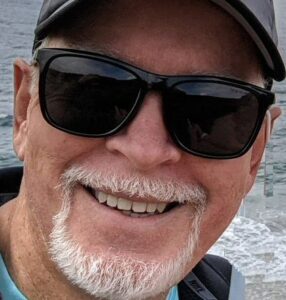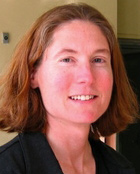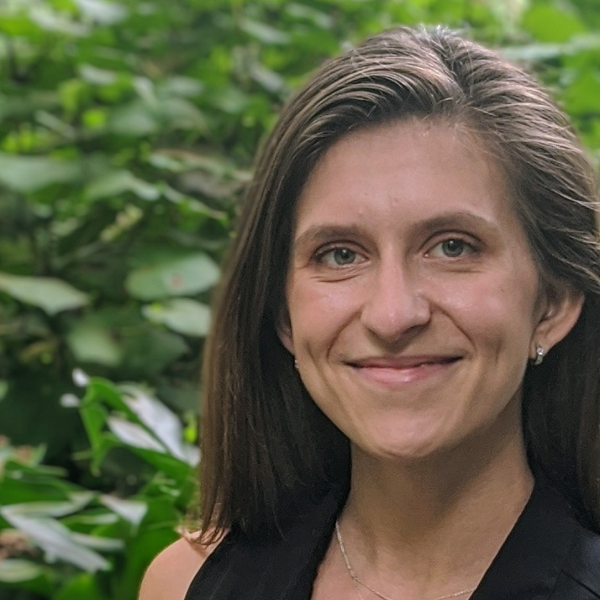Faculty

Co-Director
Professor, SDSU School of Speech, Department of Psychology
Professor, SDSU School of Speech, Department of Psychology

Co-Director, Joint Doctoral Program
Professor, UCSD Department of Cognitive Science
Professor, UCSD Department of Cognitive Science

Associate Director, Joint Doctoral Program
Clinical Faculty, SDSU School of Speech, Language and Hearing Sciences
Clinical Faculty, SDSU School of Speech, Language and Hearing Sciences
SDSU – Active Doctoral Program Faculty
- Alyson Abel-Mills, Ph.D. (Speech, Language, and Hearing Sciences) – Behavioral and neurophysiological methods to examine 1) word learning, particularly verb learning, and 2) interactions between word learning and other linguistic domains in typically developing children and children with specific language impairment.
- Crystle Alonzo, PhD, CCC-SLP (Speech, Language and Hearing Sciences) – Child language and literacy development, focusing on developmental language disorders and dyslexia. Centered on evidence-based assessments and interventions by bridging research with clinical practice through active partnerships with practitioners and implementation science research. Her work examines how cognitive abilities, linguistic diversity, and systemic disparities influence learning outcomes, ensuring that research translates into meaningful improvements for children and families.
- Ashkan Ashrafi, Ph.D. (Department of Electrical and Computer Engineering) – Research focuses on stochastic signal processing, estimation theory, graph signal processing, graph inference algorithms, brain signal analysis, brain functional connectivity, matrix theory and applied linear algebra.
- Henrike Blumenfeld, Ph.D. (Speech, Language, and Hearing Sciences) – Influence of bilingualism on language and cognition across the lifespan; bilingual aphasia. Behavioral and eye-tracking methodologies.
- Jessica Barlow, PhD (Geography) – Child language acquisition and disorders, with an emphasis in phonology.
- Laura Coco, PhD, AuD, CCC-A (Speech, Language and Hearing Sciences) – Research focuses on advancing access and equity in hearing healthcare through the development and evaluation of innovative interventions and service delivery models. She employs a community-based participatory research approach to identify barriers, inform intervention design, and guide dissemination. Her work includes mixed methods clinical trials and implementation studies aimed at increasing hearing aid uptake and reducing noise exposure risk in Spanish-speaking Latino adults. Dr. Coco collaborates closely with clinicians and researchers in communication sciences, public health, and psychology to conduct community-engaged research that addresses barriers to communication across diverse populations.
- Laura Dreisbach, PhD, AuD, CCC-A (Speech, Language and Hearing Sciences) – Research interests are focused on characterizing auditory function at the highest frequencies of human hearing with the long-term goal of developing and implementing objective metrics to monitor and detect auditory changes that serve as an early warning system to imminent hearing damage that will compromise normal speech and language development or impair existing communication.
- Karen Emmorey, Ph.D. (Speech, Language, and Hearing Sciences) – Research interests include the study of signed languages and how it provides a window into the nature of human language, into the relation between language and spatial cognition, and into the determinants of brain organization for language.
- Jennifer Felner, PhD (Public Health) – Leverages multiple methods and community-based participatory research approaches to examine and intervene on the upstream determinants of health inequities among youth, particularly LGBTQ+ youth and transitional-aged youth experiencing homelessness. Primary research aim is to advance health equity for youth and build community power to develop sustainable community health improvements.
- Inna Fishman, Ph.D. (Psychology) – Neurocognitive development in early childhood, with a particular focus on neurodevelopmental disorders, including autism spectrum and other related disorders with sociocommunicative challenges. Research methods include neuroimaging (functional, diffusion, structural MRI) in combination with clinical neuropsychology tools and behavioral assessments.
- Margaret Friend, Ph.D. (Psychology) – Developmental psychology, processes of language comprehension and the developmental relation between language and emotion in communication.
- Teresa Girolamo, Ph.D. (Speech, Language, and Hearing Sciences) - Language development and disorders in neurodivergent populations. Her research interests include developmental trajectories in autistic and nonautistic youth and adults, social drivers of health, and developing tools for investigation of language use at multiple levels (brain, behavior).
- Gregory D. Keating, Ph.D. (Linguistics) – Second language acquisition and heritage speaker bilingualism. Focuses on sentence processing in monolingual and bilingual speakers of Spanish and English and the factors that bear upon it, such as individual differences in working memory capacity and age of onset of bilingualism. Research techniques include eye-tracking (with text) and other behavioral techniques.
- Tracy Love, Ph.D. (Speech, Language, and Hearing Sciences) – Language processing in both language impaired and language unimpaired child and adult populations. Focuses on examining the nature of the information used during on-going language and cognitive processing.
- Ksenija Marinkovic, Ph.D. (Psychology) – Spatio-temporal characteristics of distributed neural circuits underlying cognition with special emphasis on language and cognitive control. This work focuses on the use of anatomically constrained MEG (aMEG) method which offers insight into the temporal sequence (“when”) of the on-line dynamics and the functional anatomy (“where”) of the multistage word comprehension process as it unfolds in time.
- Katherine J. Midgley*, Ph.D. (Psychology) – Research interests include the cognitive and neural processes involved in language comprehension and production in monolingual, bilingual and deaf populations as well as those involved in acquiring a vocabulary in a second language.
- Ralph-Axel Müller, Ph.D. (Psychology) – Brain Development Imaging investigates the plasticity of the brain organization for language in healthy children, children and adults with focal brain lesion, and in patients with autistic disorders.
- Ignatius Nip, Ph.D., CCC-SLP (Speech, Language, and Hearing Sciences) – Speech motor control and performance in children and adults with and without speech disorders. Relations among speech motor, language, and cognitive skills.
- Giang Pham, Ph.D., CCC-SLP (Speech, Language, and Hearing Sciences) – Language development and disorders among bilingual children. Her research interests include first and second-language developmental trajectories, cross-linguistic transfer, ethnic identity, and treatment for bilingual children with language impairment.
- Sonja Pruitt-Lord, PhD., CCC-SLP (Speech, Language, and Hearing Sciences) – Research focuses on improving methods of assessment and intervention for children from minoritized backgrounds to prevent misdiagnosis of language disorders and reduce health and educational disparities
- Stephanie Ries, Ph.D. (Speech, Language, and Hearing Sciences) – Research focuses on the brain dynamics of control processes in language production in healthy and impaired speakers using behavioral measures, neuropsychology, surface and intracranial electroencephalography and electromyography. Of particular interest are word retrieval and the compensatory mechanisms engaged when this process is altered.
- Ashley Sanabria, PhD, CCC-SLP (Speech, Language and Hearing Sciences) – Understanding the trajectories of language and literacy learning in bilingual students through assessment and intervention, with a focus on bilingual children with language and literacy disabilities. Her classroom observational research also allows for contextualizing these trajectories within the opportunities children have to learn.
- JoAnn Silkes, Ph.D., CCC-SLP (Speech, Language, and Hearing Sciences) – Research focuses on implicit language and cognitive processing in aphasia. In particular, she is interested in understanding language-specific versus domain-general processing impairments in aphasia, the interface between implicit and explicit processing, and methods of improving aphasia treatment by targeting implicit processes directly.
- Jessica Suhrheinrich, PhD (Education) – Research aims to improve community-based services for individuals with autism. Her current work integrates implementation science and leadership development to increase the use of evidence-based practices for autism.
- Peter Torre, PhD (Speech, Language and Hearing Sciences) – The primary research focus within the Recreational Noise Exposure and Auditory Function Lab is to evaluate how recreational noise exposure, specifically in undergraduate student music majors, affects auditory function. One goal of the lab is to determine if young adults are more at risk for earlier onset hearing loss because of their music exposure. Responses from the cochlea are measured using distortion product otoacoustic emissions (DPOAEs) while a dosimeter is used for the measurement of the music exposure level, in decibels. By combining these data, an examination of how exposure levels affect DPOAEs and if young adults are exposed to music at hazardous levels. Further, our lab has partnered with a company to provide student music majors with custom earplugs in an effort to protect their hearing in these potentially hazardous exposures.
UCSD – Active Doctoral Program Faculty
- Anne Beatty Martinez, PhD (Cognitive Science) – Research agenda capitalizes on the diversity and variability in language experience to better understand adaptive change in cognition and in behavior. The primary aim is to lay a theoretical and empirical groundwork for how people’s interactional context supports and shapes cognition across the lifespan.
- Timothy Brown, Ph.D.(Neuroscience) – Research interests include characterizing developmental changes in the structural and functional organization of the brain from infancy into young adulthood and relating these changes to different aspects of psychological development. A primary goal of this work is to integrate information from across different anatomical and physiological imaging and recording modalities in order to capture multidimensional metrics of distinct developmental phases. Dr. Brown uses multimodal and multidimensional imaging techniques to characterize phases and changes in the growing brain’s anatomy.
- Leslie Carver, Ph.D. (Psychology) – Research on the brain basis of cognitive and social cognitive development using behavioral and electrophysiological (ERP) measures.
- Seana Coulson, Ph.D. (Cognitive Science) – Research addresses the cognitive and neural basis of meaning construction using linguistic, behavioral, and electrophysiological (ERP) techniques. Interests include embodied metaphor theory and the comprehension of jokes, sarcasm, and iconic gestures.
- Sarah Creel, Ph.D. (Cognitive Science) – Uses eye tracking and behavioral methods to examine how typically developing children and adults learn and comprehend language. In particular, she investigates how learners represent sound patterns in language (phonemes, words, accents, voices) and how this changes over time and with exposure to particular languages. Her work also extends into comparing language and music. Current projects focus on comparisons of speech perception and production in young children and L2 learners, and assessing relationships between musical pitch perception and diverse tone languages.
- Gedeon Deák, Ph.D.(Cognitive Science) – Research interests include cognitive and language development in preschool children including, for example, children’s ability to name or categorize an entity differently across situations, or to shift responses across changing problem. Also, how preschoolers learn the meanings of related words. A third line is infant communication, specifically the emergence and development of episodes of shared attention between infants and caregivers.
- Victor Ferreira, Ph.D. (Psychology) – Research interests include investigations of the mechanisms of language production, computational and quantitative modeling of cognitive processes, and development of methodological tools for investigation of cognitive and perceptual processes.
- Marc Garellek, Ph.D. (Linguistics) – Phonetics and laboratory phonology, in particular phonation types or voice quality: the ways in which speakers manipulate their vocal folds to produce sounds, and how listeners perceive these manipulations.
- Tamar Gollan, Ph.D. (Psychiatry) – Using bilingualism as an experimental tool for revealing the cognitive and neural mechanisms underlying proficient language processing. Studies designed to reveal the joint consequences of bilingualism, aging, and Alzheimer’s disease for language production, language comprehension, and cognitive control.
- Frank Haist, Ph.D. (Psychiatry & Center for Human Development) – Brain basis of language, perception, and social cognition in typically developing child and adult populations, and in populations with neurological impairments. My work uses behavioral assessments together with functional and structural magnetic resonance imaging (MRI).
- Eric Halgren, Ph.D. (Neurosciences) – Research into the neural mechanisms of language and other cognitive processes, mainly with local field potential and unit recordings in humans, but also non-invasive imaging.
- Chuchu Li, PhD (Psychiatry) – Research interests include bilingual language control in comprehension and production, as well as speech planning more broadly. To use eye tracking and behavioral tasks to investigate how context, task demands, and language background influence the use of different control mechanisms across diverse populations.
- Rachel Mayberry, Ph.D. (Linguistics) – First and second-language acquisition in children and adults with an emphasis on age of acquisition effects on language knowledge and processing. Psycholinguistics of sign language, speech-gesture, and reading development in deaf and hearing populations.
- Jeanne Townsend, Ph.D. (Neurosciences) – The focus of research is the identification of brain structural and functional correlates of cognitive function, particularly the bases of attentional processes, and developmental changes in these relationships. Employ a variety of methods and techniques including neuropsychological and behavioral testing, neurophysiological recordings (EEG, ERP), structural and functional MR imaging.
- Martin Zettersten, PhD (Cognitive Science) – Language and cognitive development, active information-seeking and curiosity, statistical learning, word learning, big data in developmental research, infant looking time and eye-tracking methods.
Contact Us
SDSU Speech Language and Hearing
Interested in getting in touch with us? Please complete the Email Form
